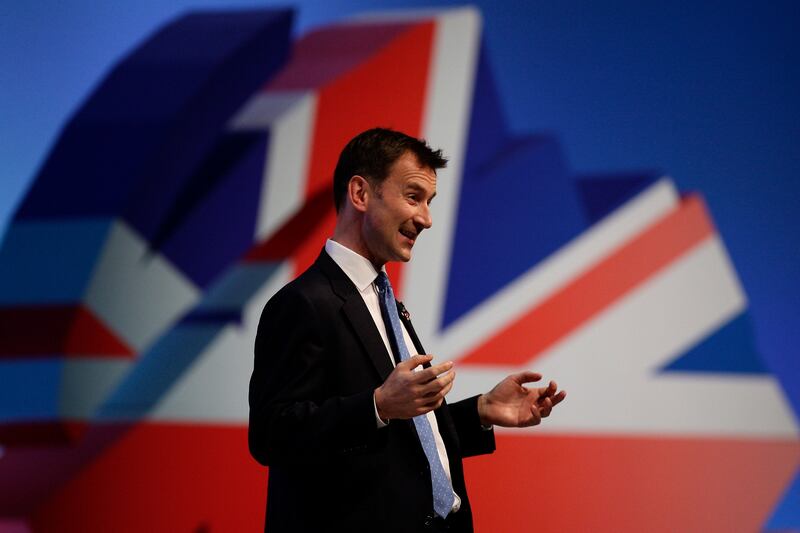Was News Corp. secretly meeting with parliamentary investigators, too?
While the British Culture minister, Jeremy Hunt, is still fighting for his ministerial survival as a result of evidence submitted to the Leveson Inquiry by News Corp., more evidence has emerged today that raises questions about the impartiality of some members of the Parliamentary Select Committee who are on the verge of delivering their long-awaited verdict on the phone-hacking scandal.
Jeremy Hunt’s ministerial career is on the line because of an email chain submitted as part of Rupert Murdoch’s evidence to the Leveson Inquiry on Tuesday suggesting a senior News Corp. lobbyist was in intensive contact with his office during the months he was judging News Corp.’s $16 million bid for BSkyB. The minister was supposed to be acting in a “quasi-judicial role” and the appearance of a back channel with one side of the contentious bid is alleged to have compromised his impartiality.
Meanwhile, in a separate written submission Thursday, Rupert Murdoch detailed all the political contacts that have taken place between News Corp. and British parliamentarians since 2009. Included on page 3 of the list are five Conservative members of the Department of Culture, Media and Sport’s Select Committee, including the committee’s chairman John Whittingdale.
Chris Bryant, a Labour MP who sat on the same committee from 2001 to 2005, told The Daily Beast he finds these revelations troubling: “We normally do not have private meetings with companies or individuals who we are investigating especially if they are pursuing a particular agenda.”
News Corp.’s evidence only names individuals and time periods, and gives no detail about the frequency or content of the meetings. However, during the last three years the DCMS has been running two inquiries in into News Corp.’s News International subsidiary, mainly as a result of the phone hacking at News of the World which first emerged in 2006.

The committee’s first 2009-10 report into Press Standards, Privacy and Libel noted the “collective amnesia” of News International executives over the phone-hacking issue, but refused to compel the then chief executive of News International, Rebekah Brooks, to testify.
A Labour member, Tom Watson has claimed in his recent book Dial M for Murdoch that members of the committee were intimidated by News International. As he said during the launch of the book last week: “"I was told by a senior Conservative member of the committee, who I knew was in direct contact with executives at News International, that if we went for [Rebekah Brooks], they would go for us—effectively they would delve into our personal lives in order to punish [us].”
The second inquiry coincided with the breaking scandal last summer when police inquiries discovered thousands of other potential victims of phone hacking at News of the World. On this occasion the committee compelled Rebekah Brooks, James Murdoch, and Rupert to attend. Their final report—which could move from a condemnation of “collective amnesia” to something much more damning—is due to be released this Tuesday.
For Chris Bryant, this new evidence of potential behind-the-scenes briefing has troubling echoes of the case of the Culture Minister, Jeremy Hunt. “The DCMS report is a quasi-judicial judgment too. If various members of the committee such as Damian Collins or Louise Mensch were having private briefings from Sky or other News Corp. subsidiaries, then I would take a pretty dim view. It would show a major lapse of judgment if during such a high profile committee, where the issue at stake is whether M.P.s are at the beck and call of News International, members should cock a snook this way.”
Bryant noted that the M.P.s in question were all Conservative, and added, “I think they should reveal what happened in those private meetings.”
Therese Coffey, a member of the DCMS committee, told The Daily Beast, “I have not met with News International or News Corp. during our inquiry." Damian Collins told The Daily Beast "I have not had any meetings or engaged in any correspondence with News Corporation, nor any of its companies, regarding the committee's phone hacking inquiry or related issues." Collins said that he had not had any contact with Fred Michel, and he is "only listed as having been contacted with regards to the BBC strategy review, and not in relation to any of the committee's work on the press. I cannot recall any meetings with News Corporation regarding the BBC, but I have met with representatives of Sky TV, to discuss their work. I have had similar meetings with ITV, the BBC and Channel 4 in the past as well."
John Whittingdale, Philip Davies, and Louise Mensch did not immediately respond to requests for comment.





